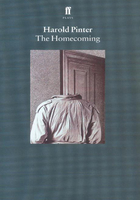In ten minutes Mazarin and his party were traversing the street "Les Bons Enfants" behind the theatre built by Richelieu expressly for the play of "Mirame," and in which Mazarin, who was an amateur of music, but not of literature, had introduced into France the first opera that was ever acted in that country.
The appearance of the town denoted the greatest agitation. Numberless groups paraded the streets and, whatever D'Artagnan might think of it, it was obvious that the citizens had for the night laid aside their usual forbearance, in order to assume a warlike aspect. From time to time noises came in the direction of the public markets. The report of firearms was heard near the Rue Saint Denis and occasionally church bells began to ring indiscriminately and at the caprice of the populace. D'Artagnan, meantime, pursued his way with the indifference of a man upon whom such acts of folly made no impression. When he approached a group in the middle of the street he urged his horse upon it without a word of warning; and the members of the group, whether rebels or not, as if they knew with what sort of a man they had to deal, at once gave place to the patrol. The cardinal envied that composure, which he attributed to the habit of meeting danger; but none the less he conceived for the officer under whose orders he had for the moment placed himself, that consideration which even prudence pays to careless courage. On approaching an outpost near the Barriere des Sergens, the sentinel cried out, "Who's there?" and D'Artagnan answered—having first asked the word of the cardinal—"Louis and Rocroy." After which he inquired if Lieutenant Comminges were not the commanding officer at the outpost. The soldier replied by pointing out to him an officer who was conversing, on foot, his hand upon the neck of a horse on which the individual to whom he was talking sat. Here was the officer D'Artagnan was seeking.
"Here is Monsieur Comminges," said D'Artagnan, returning to the cardinal. He instantly retired, from a feeling of respectful delicacy; it was, however, evident that the cardinal was recognized by both Comminges and the other officers on horseback.
"Well done, Guitant," cried the cardinal to the equestrian; "I see plainly that, notwithstanding the sixty-four years that have passed over your head, you are still the same man, active and zealous. What were you saying to this youngster?"
"My lord," replied Guitant, "I was observing that we live in troublous times and that to-day's events are very like those in the days of the Ligue, of which I heard so much in my youth. Are you aware that the mob have even suggested throwing up barricades in the Rue Saint Denis and the Rue Saint Antoine?"
"And what was Comminges saying to you in reply, my good Guitant?"
"My lord," said Comminges, "I answered that to compose a Ligue only one ingredient was wanting—in my opinion an essential one—a Duc de Guise; moreover, no generation ever does the same thing twice."
"No, but they mean to make a Fronde, as they call it," said Guitant.
"And what is a Fronde?" inquired Mazarin.
"My lord, Fronde is the name the discontented give to their party."
"And what is the origin of this name?"
"It seems that some days since Councillor Bachaumont remarked at the palace that rebels and agitators reminded him of schoolboys slinging—qui frondent—stones from the moats round Paris, young urchins who run off the moment the constable appears, only to return to their diversion the instant his back is turned. So they have picked up the word and the insurrectionists are called 'Frondeurs,' and yesterday every article sold was 'a la Fronde;' bread 'a la Fronde,' hats 'a la Fronde,' to say nothing of gloves, pocket-handkerchiefs, and fans; but listen——"
At that moment a window opened and a man began to sing:
"A tempest from the Fronde
Did blow to-day:
I think 'twill blow
Sieur Mazarin away."
"Insolent wretch!" cried Guitant.
"My lord," said Comminges, who, irritated by his wounds, wished for revenge and longed to give back blow for blow, "shall I fire off a ball to punish that jester, and to warn him not to sing so much out of tune in the future?"
And as he spoke he put his hand on the holster of his uncle's saddle-bow.
"Certainly not! certainly not," exclaimed Mazarin. "Diavolo! my dear friend, you are going to spoil everything—everything is going on famously. I know the French as well as if I had made them myself. They sing—let them pay the piper. During the Ligue, about which Guitant was speaking just now, the people chanted nothing except the mass, so everything went to destruction. Come, Guitant, come along, and let's see if they keep watch at the Quinze-Vingts as at the Barriere des Sergens."
And waving his hand to Comminges he rejoined D'Artagnan, who instantly put himself at the head of his troop, followed by the cardinal, Guitant and the rest of the escort.
"Just so," muttered Comminges, looking after Mazarin. "True, I forgot; provided he can get money out of the people, that is all he wants."
The street of Saint Honore, when the cardinal and his party passed through it, was crowded by an assemblage who, standing in groups, discussed the edicts of that memorable day. They pitied the young king, who was unconsciously ruining his country, and threw all the odium of his proceedings on Mazarin. Addresses to the Duke of Orleans and to Conde were suggested. Blancmesnil and Broussel seemed in the highest favor.
D'Artagnan passed through the very midst of this discontented mob just as if his horse and he had been made of iron. Mazarin and Guitant conversed together in whispers. The musketeers, who had already discovered who Mazarin was, followed in profound silence. In the street of Saint Thomas-du-Louvre they stopped at the barrier distinguished by the name of Quinze-Vingts. Here Guitant spoke to one of the subalterns, asking how matters were progressing.
"Ah, captain!" said the officer, "everything is quiet hereabout—if I did not know that something is going on in yonder house!"
And he pointed to a magnificent hotel situated on the very spot whereon the Vaudeville now stands.
"In that hotel? it is the Hotel Rambouillet," cried Guitant.
"I really don't know what hotel it is; all I do know is that I observed some suspicious looking people go in there——"
"Nonsense!" exclaimed Guitant, with a burst of laughter; "those men must be poets."
"Come, Guitant, speak, if you please, respectfully of these gentlemen," said Mazarin; "don't you know that I was in my youth a poet? I wrote verses in the style of Benserade——"
"You, my lord?"
"Yes, I; shall I repeat to you some of my verses?"
"Just as you please, my lord. I do not understand Italian."
"Yes, but you understand French," and Mazarin laid his hand upon Guitant's shoulder. "My good, my brave Guitant, whatsoever command I may give you in that language—in French—whatever I may order you to do, will you not perform it?"
"Certainly. I have already answered that question in the affirmative; but that command must come from the queen herself."
"Yes! ah yes!" Mazarin bit his lips as he spoke; "I know your devotion to her majesty."
"I have been a captain in the queen's guards for twenty years," was the reply.
"En route, Monsieur d'Artagnan," said the cardinal; "all goes well in this direction."
D'Artagnan, in the meantime, had taken the head of his detachment without a word and with that ready and profound obedience which marks the character of an old soldier.
He led the way toward the hill of Saint Roche. The Rue Richelieu and the Rue Villedot were then, owing to their vicinity to the ramparts, less frequented than any others in that direction, for the town was thinly inhabited thereabout.
"Who is in command here?" asked the cardinal.
"Villequier," said Guitant.
"Diavolo! Speak to him yourself, for ever since you were deputed by me to arrest the Duc de Beaufort, this officer and I have been on bad terms. He laid claim to that honor as captain of the royal guards."
"I am aware of that, and I have told him a hundred times that he was wrong. The king could not give that order, since at that time he was hardly four years old."
"Yes, but I could give him the order—I, Guitant—and I preferred to give it to you."
Guitant, without reply, rode forward and desired the sentinel to call Monsieur de Villequier.
"Ah! so you are here!" cried the officer, in the tone of ill-humor habitual to him; "what the devil are you doing here?"
"I wish to know—can you tell me, pray—is anything fresh occurring in this part of the town?"
"What do you mean? People cry out, 'Long live the king! down with Mazarin!' That's nothing new; no, we've been used to those acclamations for some time."
"And you sing chorus," replied Guitant, laughing.
"Faith, I've half a mind to do it. In my opinion the people are right; and cheerfully would I give up five years of my pay—which I am never paid, by the way—to make the king five years older."
"Really! And pray what would come to pass, supposing the king were five years older than he is?"
"As soon as ever the king comes of age he will issue his commands himself, and 'tis far pleasanter to obey the grandson of Henry IV. than the son of Peter Mazarin. 'Sdeath! I would die willingly for the king, but supposing I happened to be killed on account of Mazarin, as your nephew came near being to-day, there could be nothing in Paradise, however well placed I might be there, that could console me for it."
"Well, well, Monsieur de Villequier," Mazarin interposed, "I shall make it my care the king hears of your loyalty. Come, gentlemen," addressing the troop, "let us return."
"Stop," exclaimed Villequier, "so Mazarin was here! so much the better. I have been waiting for a long time to tell him what I think of him. I am obliged to you Guitant, although your intention was perhaps not very favorable to me, for such an opportunity."
He turned away and went off to his post, whistling a tune then popular among the party called the "Fronde," whilst Mazarin returned, in a pensive mood, toward the Palais Royal. All that he had heard from these three different men, Comminges, Guitant and Villequier, confirmed him in his conviction that in case of serious tumults there would be no one on his side except the queen; and then Anne of Austria had so often deserted her friends that her support seemed most precarious. During the whole of this nocturnal ride, during the whole time that he was endeavoring to understand the various characters of Comminges, Guitant and Villequier, Mazarin was, in truth, studying more especially one man. This man, who had remained immovable as bronze when menaced by the mob—not a muscle of whose face was stirred, either at Mazarin's witticisms or by the jests of the multitude—seemed to the cardinal a peculiar being, who, having participated in past events similar to those now occurring, was calculated to cope with those now on the eve of taking place.
The name of D'Artagnan was not altogether new to Mazarin, who, although he did not arrive in France before the year 1634 or 1635, that is to say, about eight or nine years after the events which we have related in a preceding narrative,[2]?fancied he had heard it pronounced as that of one who was said to be a model of courage, address and loyalty.
Possessed by this idea, the cardinal resolved to know all about D'Artagnan immediately; of course he could not inquire from D'Artagnan himself who he was and what had been his career; he remarked, however, in the course of conversation that the lieutenant of musketeers spoke with a Gascon accent. Now the Italians and the Gascons are too much alike and know each other too well ever to trust what any one of them may say of himself; so in reaching the walls which surrounded the Palais Royal, the cardinal knocked at a little door, and after thanking D'Artagnan and requesting him to wait in the court of the Palais Royal, he made a sign to Guitant to follow him.
They both dismounted, consigned their horses to the lackey who had opened the door, and disappeared in the garden.
"My dear friend," said the cardinal, leaning, as they walked through the garden, on his friend's arm, "you told me just now that you had been twenty years in the queen's service."
"Yes, it's true. I have," returned Guitant.
"Now, my dear Guitant, I have often remarked that in addition to your courage, which is indisputable, and your fidelity, which is invincible, you possess an admirable memory."
"You have found that out, have you, my lord? Deuce take it—all the worse for me!"
"How?"
"There is no doubt but that one of the chief accomplishments of a courtier is to know when to forget."
"But you, Guitant, are not a courtier. You are a brave soldier, one of the few remaining veterans of the days of Henry IV. Alas! how few to-day exist!"
"Plague on't, my lord, have you brought me here to get my horoscope out of me?"
"No; I only brought you here to ask you," returned Mazarin, smiling, "if you have taken any particular notice of our lieutenant of musketeers?"
"Monsieur d'Artagnan? I have had no occasion to notice him particularly; he's an old acquaintance. He's a Gascon. De Treville knows him and esteems him very highly, and De Treville, as you know, is one of the queen's greatest friends. As a soldier the man ranks well; he did his whole duty and even more, at the siege of Rochelle—as at Suze and Perpignan."
"But you know, Guitant, we poor ministers often want men with other qualities besides courage; we want men of talent. Pray, was not Monsieur d'Artagnan, in the time of the cardinal, mixed up in some intrigue from which he came out, according to report, quite cleverly?"
"My lord, as to the report you allude to"—Guitant perceived that the cardinal wished to make him speak out—"I know nothing but what the public knows. I never meddle in intrigues, and if I occasionally become a confidant of the intrigues of others I am sure your eminence will approve of my keeping them secret."
Mazarin shook his head.
"Ah!" he said; "some ministers are fortunate and find out all that they wish to know."
"My lord," replied Guitant, "such ministers do not weigh men in the same balance; they get their information on war from warriors; on intrigues, from intriguers. Consult some politician of the period of which you speak, and if you pay well for it you will certainly get to know all you want."
"Eh, pardieu!" said Mazarin, with a grimace which he always made when spoken to about money. "They will be paid, if there is no way of getting out of it."
"Does my lord seriously wish me to name any one who was mixed up in the cabals of that day?"
"By Bacchus!" rejoined Mazarin, impatiently, "it's about an hour since I asked you for that very thing, wooden-head that you are."
"There is one man for whom I can answer, if he will speak out."
"That's my concern; I will make him speak."
"Ah, my lord, 'tis not easy to make people say what they don't wish to let out."
"Pooh! with patience one must succeed. Well, this man. Who is he?"
"The Comte de Rochefort."
"The Comte de Rochefort!"
"Unfortunately he has disappeared these four or five years and I don't know where he is."
"I know, Guitant," said Mazarin.
"Well, then, how is it that your eminence complained just now of want of information?"
"You think," resumed Mazarin, "that Rochefort——"
"He was Cardinal Richelieu's creature, my lord. I warn you, however, his services will cost you something. The cardinal was lavish to his underlings."
"Yes, yes, Guitant," said Mazarin; "Richelieu was a great man, a very great man, but he had that defect. Thanks, Guitant; I shall benefit by your advice this very evening."
Here they separated and bidding adieu to Guitant in the court of the Palais Royal, Mazarin approached an officer who was walking up and down within that inclosure.
It was D'Artagnan, who was waiting for him.
"Come hither," said Mazarin in his softest voice; "I have an order to give you."
D'Artagnan bent low and following the cardinal up the secret staircase, soon found himself in the study whence they had first set out.
The cardinal seated himself before his bureau and taking a sheet of paper wrote some lines upon it, whilst D'Artagnan stood imperturbable, without showing either impatience or curiosity. He was like a soldierly automaton, or rather, like a magnificent marionette.
The cardinal folded and sealed his letter.
"Monsieur d'Artagnan," he said, "you are to take this dispatch to the Bastile and bring back here the person it concerns. You must take a carriage and an escort, and guard the prisoner with the greatest care."
D'Artagnan took the letter, touched his hat with his hand, turned round upon his heel like a drill-sergeant, and a moment afterward was heard, in his dry and monotonous tone, commanding "Four men and an escort, a carriage and a horse." Five minutes afterward the wheels of the carriage and the horses' shoes were heard resounding on the pavement of the courtyard.













